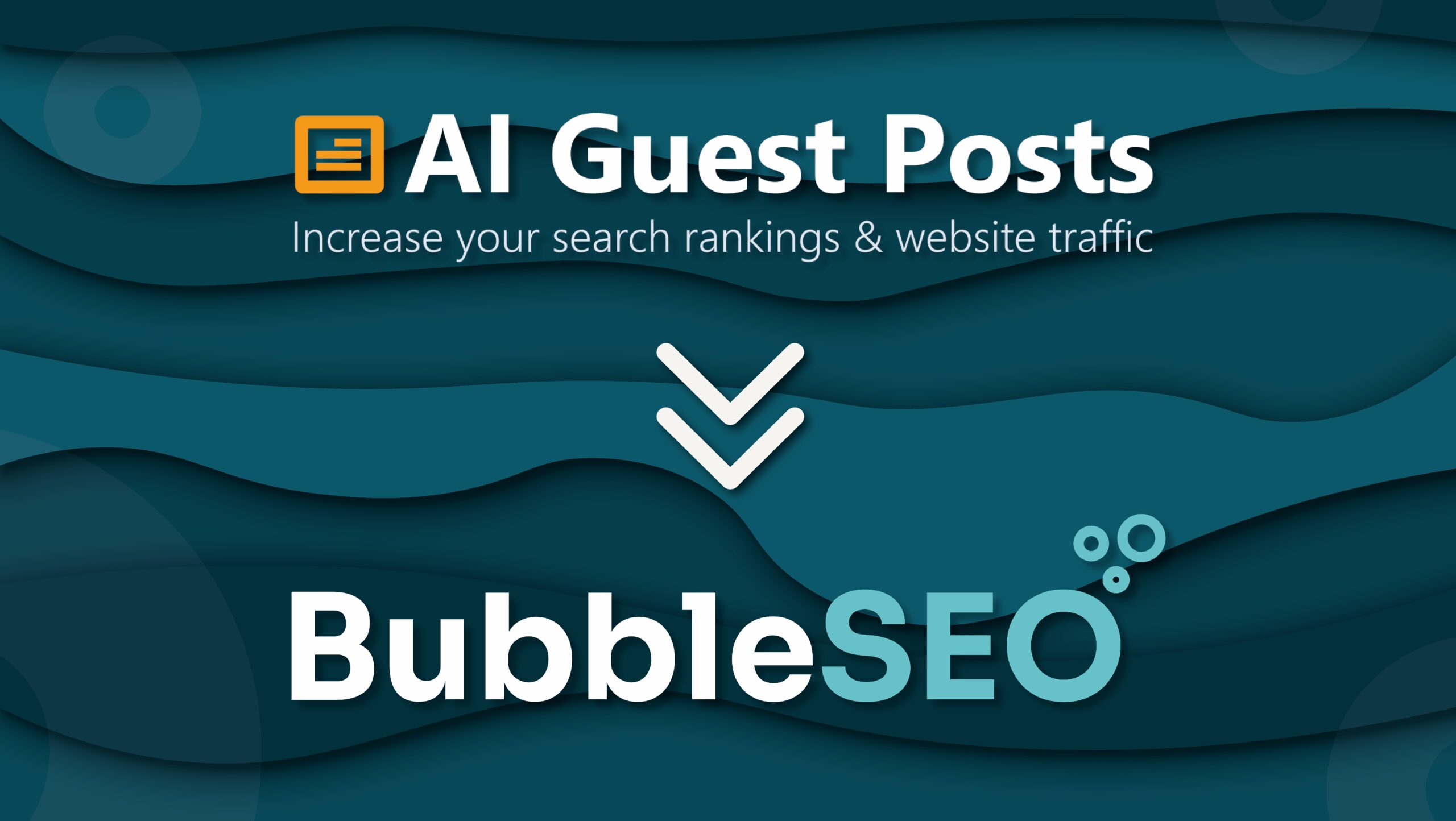
Do Follow and No Follow are hyperlink attributes that have different implications for SEO and SERP.

Creating engaging and optimised content is crucial for driving traffic and achieving higher rankings on search engines.

Creating engaging and optimised content is crucial for driving traffic and achieving higher rankings on search engines. Here are some essential tips to enhance your content writing and develop a robust SEO content strategy.
Before you start writing, it is important to identify who your target audience is. Understand their needs, preferences, and pain points. This will help you create content that resonates with them and keeps them engaged.
Keywords are the backbone of SEO. Use tools like Google Keyword Planner, Ahrefs, or SEMrush to find relevant keywords for your niche. Focus on long-tail keywords as they often have lower competition and higher conversion rates.
Your headline is the first thing readers see. Make it catchy and relevant to grab their attention. Use power words and numbers to increase click-through rates.
Quality is paramount. Ensure your content is informative, well-researched, and provides value to the reader. Avoid fluff and focus on delivering actionable insights.
– Use Keywords Strategically: Include your main keywords in the title, headings, and throughout the content. However, avoid keyword stuffing.
– Meta Descriptions: Write compelling meta descriptions that include your target keywords.
– Internal Linking: Link to other relevant pages on your website to keep readers engaged and reduce bounce rates.
– External Linking: Link to authoritative sources to add credibility to your content.
Link building is a crucial aspect of SEO. Use link building services to acquire high-quality backlinks from reputable sites. This improves your site’s authority and boosts your rankings.
Guest posting on other blogs can drive traffic to your site and improve your SEO. Write high-quality guest posts for reputable blogs in your niche. Ensure your bio includes a link back to your site.
Incorporate images, infographics, and videos to make your content more engaging. Visual content can break up text and keep readers interested.
– Short Paragraphs: Keep paragraphs short to enhance readability.
– Subheadings: Use subheadings to organise your content and make it scannable.
– Bullet Points: Use bullet points to highlight key information.
SEO is not a one-time effort. Regularly update your content to keep it relevant and fresh. This helps maintain your rankings and attract new visitors.
Share your content on social media, newsletters, and other platforms to increase its reach. Engage with your audience and encourage them to share it.
Use tools like Google Analytics to track the performance of your content. Analyse metrics such as bounce rate, time on page, and conversion rate. Use these insights to refine your content strategy.
By following these tips, you can create compelling content that not only engages your audience but also boosts your SEO efforts. Implementing a solid SEO content strategy, utilising link building services, and leveraging guest posting will help you achieve better rankings and drive more traffic to your site.
Grow your business online with content marketing solutions from Bubble SEO today.
Place An Order
We're excited to announce that AI Guest Posts has undergone a transformative rebranding and is now known as Bubble SEO. This strategic move has allowed the business to develop within the digital landscape and highlight our commitment to providing digital marketing solutions tailored to enhance online visibility and engagement for our customers. Bubble SEO remains dedicated to delivering high-quality, targeted content and effective SEO solutions that align with evolving digital marketing trends. Here is a little more information about our brand and its services. Our services: At Bubble SEO, we specialise in three core services, with content writing being a new feature to the website: Guest Posting: Which aims to enhance your online presence with high-quality guest posts on authoritative websites, driving traffic and boosting your SEO rankings. Link Building: Helps build a robust backlink profile with strategic link building services that improve your website's authority and visibility. Content Writing: Provides engaging content for your audience with compelling content tailored to your brand voice and SEO needs. Benefits of Bubble SEO: We have now made changes to the booking process to simplify this, and updated the customer dashboard section in the hope to improve our existing values below: Enhanced Service Quality: With our rebranding comes a renewed focus on delivering top-notch services that exceed your expectations. Improved User Experience: Our new website offers a streamlined interface, making it easier for you to navigate and access our services. Expanded Network: Benefit from our expanded network of partner websites, ensuring broader outreach and better opportunities for your business. Loyalty Rewards: As a token of our appreciation for the continued support of our bookers, we have now introduced loyalty rewards: Exclusive Discounts: Enjoy special discounts as a loyal Bubble SEO customer, with the more points you acquire, the more exciting offers you will unlock. We're thrilled about this new chapter as Bubble SEO and look forward to continuing to be your trusted partner in achieving your digital marketing goals. Stay tuned for more exciting updates and announcements! Discover the new Bubble SEO and elevate your online presence today! Jennifer Hobson – Digital Marketing [email protected] Heather Ryan – Business Development [email protected]

If you're new to SEO, navigating through its many layers can seem overwhelming. However, by following a clear, structured approach, you can start optimising your website and boosting your rankings effectively. Here's The Ultimate SEO Checklist for Beginners to help you understand the fundamentals and ensure you're on the right path to success. 1. Keyword Research Keywords form the foundation of any SEO strategy. Start by identifying the main keywords that are relevant to your business or niche. Tools like Google Keyword Planner, Ahrefs, or SEMrush can help you find high-traffic keywords with low competition. Target Long-Tail Keywords: These are more specific phrases that are less competitive and can help you capture targeted traffic. For example, instead of just "SEO," use "SEO for small businesses" or "SEO checklist for beginners." Understand User Intent: Ensure your keywords align with what your target audience is searching for, and use them naturally in your content. 2. On-Page SEO Optimisation Once you've identified your keywords, it's time to optimise your website pages. Title Tags: Include your primary keyword in the title tag, ideally at the beginning. Keep it under 60 characters. Meta Descriptions: Write compelling meta descriptions with your primary keyword to improve click-through rates (CTR). Header Tags: Use headers to structure your content, with the primary keyword in the H1 tag and related keywords in the H2 and H3 tags. Image Alt Text: Include keywords in the alt text of images to help search engines understand the context of your visuals. 3. Create High-Quality Content Content marketing is at the heart of SEO success. Focus on providing valuable, informative, and engaging content that resonates with your audience. Write for Humans First: Avoid keyword stuffing and prioritise creating helpful content that satisfies the needs of your readers. Use Keywords Naturally: Place your primary keyword in the first 100 words, and sprinkle related keywords throughout the text. However, keep the flow natural. Content-Length: While there’s no magic number, longer content (1000+ words) often ranks better, but only if it provides comprehensive value. Consistent Blogging: Regularly publish fresh blog posts on topics relevant to your audience, leveraging your target keywords. 4. Mobile Optimisation With mobile traffic now surpassing desktop, it’s critical that your website is optimised for mobile users. Responsive Design: Ensure your website is mobile-friendly and loads quickly on all devices. Fast Page Load Times: Use tools like Google PageSpeed Insights to check and improve your site’s speed. Slow sites can hurt both rankings and user experience. 5. Build Strong Backlinks Link building is essential for establishing your site's authority in your industry. The more high-quality backlinks (external sites linking to your content) you have, the better your chances of ranking higher in search results. Guest Posting: Write guest posts for reputable blogs within your niche and include backlinks to your site. This helps both SEO and brand visibility. Internal Linking: Link to other relevant content on your website to create a clear structure and boost page authority. Earn Editorial Links: Create high-quality, shareable content that others in your industry will naturally link to, such as guides, infographics, or data-driven reports. 6. Technical SEO Technical SEO ensures that your website is easy for search engines to crawl and index. Submit XML Sitemap: Make sure your site is indexed by submitting an XML sitemap to Google Search Console. Fix Broken Links: Use tools to identify and repair any broken links on your site, as they can hurt both user experience and SEO. Enable HTTPS: If your site doesn’t have an SSL certificate, secure it with HTTPS to protect users and improve rankings. 7. Track and Analyse Your Results SEO is an ongoing process. You need to monitor and measure your performance to see what’s working and what needs improvement. Use Google Analytics: Track your site’s traffic, top-performing pages, and where your visitors are coming from. Monitor Rankings: Regularly check how your keywords are ranking in search engines, and adjust your strategy accordingly. Watch Your Competitors: Keep an eye on competitors who rank well for your target keywords and analyse what they are doing right. By following this SEO checklist, beginners can set a strong foundation for long-term SEO success. From keyword research and content marketing to link building and technical SEO, each step is vital for improving your website’s rankings and visibility. Stay consistent, be patient, and continually refine your strategy as you track your results. With time and effort, you’ll start seeing the benefits of your SEO efforts!

In the digital age, content marketing remains a cornerstone of successful online business strategies. By creating valuable, relevant, and consistent content, businesses can engage their audiences, drive website traffic, and boost sales. Whether you’re a seasoned marketer or just beginning your journey, mastering content marketing requires the right tools and techniques. Let’s explore some essentials that can help elevate your content marketing efforts. Understanding Content Marketing Fundamentals Content marketing isn’t just about producing blog posts or social media updates. It’s about delivering the right message to the right audience at the right time. To achieve this, you need a clear strategy. Here are the steps to ensure your content strategy is effective: Define Your Goals: What do you want to achieve? Increased traffic, higher engagement, or more leads? Know Your Audience: Use tools like Google Analytics to understand audience demographics and behaviour. Choose Your Platforms: Focus on where your audience spends the most time—be it LinkedIn, Instagram, or your blog. Essential Content Marketing Tools To stay ahead in a competitive digital landscape, leveraging the right tools is crucial. Here are some must-haves: SEO Tools Google Keyword Planner: Discover high-performing keywords to create targeted content. SEMRush: Analyse competitors and uncover content opportunities. Content Creation Canva: Design engaging visuals without needing advanced graphic design skills. Grammarly: Ensure your content is polished and error-free. Content Management WordPress: Manage your blog and website seamlessly. Bubble SEO: Take advantage of professional guest posting, content writing, and link-building services to amplify your marketing efforts. Social Media Scheduling Hootsuite: Schedule and analyse social media posts across platforms. Buffer: Manage your posting schedule efficiently to maximize reach. Techniques to Perfect Your Content Marketing Strategy Prioritise Quality Over QuantityIt’s better to post one high-quality article per week than several mediocre ones. Focus on providing value to your audience. Optimise for SEOEvery piece of content should be optimised for search engines. Use relevant keywords, meta descriptions, and engaging headlines to improve visibility. For expert advice, visit Bubble SEO. Leverage AnalyticsRegularly analyse your content’s performance using tools like Google Analytics. Track metrics such as page views, time on site, and conversion rates to refine your strategy. Experiment with Different FormatsDon’t limit yourself to blogs—explore videos, podcasts, infographics, and webinars to diversify your content and reach new audiences. Future-Proof Your Content Strategy As trends in digital marketing evolve, staying adaptable is key. Keep an eye on developments in artificial intelligence (AI), voice search, and interactive content. By doing so, you’ll maintain a competitive edge in an ever-changing landscape. If you’re ready to take your content marketing to the next level, explore the bespoke services offered by Bubble SEO. Their tailored solutions will ensure your content reaches the right audience at the right time, driving results that matter. Content marketing is an art and a science. By combining the right tools, techniques, and insights, you can create a strategy that not only captures attention but also fosters long-term growth for your business.

Google is known for its constant algorithm updates, with the goal of improving the quality of search results and enhancing the user experience. In 2024, several significant updates have rolled out, impacting how websites are ranked and how marketers approach their SEO strategies. Below, we explore the key changes and what they mean for businesses and digital marketers. 1. Focus on Helpful Content: The "Helpful Content" Update One of Google's core focuses this year has been on promoting "helpful content". The Helpful Content Update prioritises pages that provide real value to users over those stuffed with keywords or created solely for ranking purposes. Google’s AI now does a better job of determining the true intent behind content, rewarding pages that genuinely address user needs. How to Adapt: Audience-Centric Content: Ensure your content addresses user queries comprehensively and prioritises providing answers or solutions rather than just boosting rankings. Remove Fluff: Thin, repetitive, or overly-optimised content can hurt your rankings. Focus on improving the depth and originality of your articles. User Satisfaction Signals: Pay attention to user engagement metrics, such as time on page and bounce rate, as these can indicate how "helpful" users find your content. 2. Enhanced E-E-A-T: Experience, Expertise, Authoritativeness, and Trustworthiness Google has added an extra "E" to E-A-T, now called "E-E-A-T"—"Experience." This addition means Google now considers whether content creators have first-hand experience on the topics they discuss. This change is particularly impactful in areas like health, finance, and other “Your Money, Your Life” (YMYL) niches. How to Adapt: Author Expertise: Ensure content is created or reviewed by individuals with direct experience or expertise in the field. Author Bios and Credibility: Include detailed author bios, qualifications, and links to credible sources that verify the author's expertise. First-Hand Accounts: Incorporate personal experiences, case studies, and testimonials into your content to demonstrate true experience. 3. Page Experience Update: Mobile-First and Core Web Vitals Google continues to push the importance of user experience with updates to its Page Experience metrics, especially emphasising mobile usability and Core Web Vitals. The Core Web Vitals include metrics such as Largest Contentful Paint (LCP), First Input Delay (FID), and Cumulative Layout Shift (CLS), all of which measure the quality of a user’s interaction with your website. How to Adapt: Speed Optimisation: Optimise your website's loading speed, with particular focus on mobile devices. Stability and Responsiveness: Minimise layout shifts that might frustrate users, and ensure that interactive elements are highly responsive. Mobile-Friendly Design: Test your website across various devices and screen sizes to ensure a seamless mobile experience. 4. AI and Conversational Search: Integration of Generative AI Results Google has rolled out more integrations of generative AI and conversational search features into their search engine results. Google's Search Generative Experience (SGE) aims to provide more interactive, AI-driven results that summarise complex queries in a conversational way. This impacts the traditional search result layout and the visibility of featured snippets. How to Adapt: Structured Data Usage: Ensure your website uses structured data to help Google understand your content better and make it more likely to be included in AI-generated responses. Conversational Content: Incorporate a natural, conversational tone into your content, anticipating longer, more complex queries that users might ask AI. Focus on Rich Answers: Create content that answers questions in a concise, authoritative manner to increase chances of being included in AI summaries or rich answers. 5. Spam and Link Quality Updates Recent updates have also focused on cracking down on spammy practices and low-quality link building. Google's SpamBrain AI is better at detecting manipulative link schemes and penalising websites involved in unnatural link practices. It’s clear that Google’s push for higher quality extends to off-page SEO as well. How to Adapt: High-Quality Backlinks: Focus on acquiring backlinks from reputable, relevant sources rather than quantity. Check out Ahrefs’ Guide to Quality Backlinks for strategies. Disavow Low-Quality Links: Regularly audit your backlink profile and disavow any links from spammy or irrelevant sites using the Google Disavow Tool. Avoid Link Manipulation: Avoid engaging in link exchanges, PBNs, or other tactics that could be flagged as manipulative. Conclusion: Staying Ahead of Google Updates Google’s recent updates underscore its commitment to improving user experience, content quality, and combatting spam. SEO professionals and content creators must adapt by prioritising helpful, experience-driven content, optimising user experience metrics, and focusing on high-quality, ethical link-building practices. Staying informed about these changes and continuously refining your SEO strategy are key to maintaining strong visibility in search results. Remember, Google's updates are ultimately aimed at rewarding websites that provide real value to users—so focus on creating the best possible experience for your audience, and you'll stay on the right side of these changes.

With Black Friday almost upon us, we have put together some tips of how you can get ahead with your socials

In the constantly changing landscape of SEO, staying ahead of the competition means focusing on more than just keywords and backlinks. A growing emphasis is on building topical authority—a strategy that helps websites become recognised experts in their niche, providing immense value to both search engines and users alike. But what exactly is topical authority, and why is it crucial for SEO success? Let’s delve deeper into this concept and understand how to build it effectively. What is Topical Authority? Topical authority refers to how well a website is trusted to provide comprehensive, expert information on a particular subject or niche. In simple terms, it's about becoming an authority in a specific area by covering it extensively and in-depth. When Google sees that your website consistently offers valuable, well-researched, and complete information about a topic, it begins to consider you a "go-to" source for users looking for information on that subject. For example, if your website specialises in “vegan cooking,” building topical authority means creating a vast amount of content that thoroughly covers every aspect of vegan cooking—recipes, ingredients, benefits, challenges, tips for beginners, and more. By consistently providing high-quality, interconnected content, your site gains authority over time, which translates to higher rankings and increased organic traffic. The Importance of Building Topical Authority 1. Improved Search Engine Rankings Search engines, particularly Google, are constantly working on improving the relevance of the search results they provide to users. With advancements in AI and semantic search, Google now looks beyond individual keywords and assesses the overall context of a website. Websites with topical authority are more likely to be ranked higher because Google recognises them as comprehensive and trustworthy sources. 2. Increased User Trust and Engagement Users are more likely to trust websites that provide in-depth, reliable information on a subject they are researching. If a visitor lands on your website and finds a treasure trove of well-organised content, they are more likely to stay longer, interact with your site, and return in the future. This engagement boosts important metrics like time on page and bounce rate, which further helps with SEO. 3. Higher Relevance in Competitive Niches When you establish topical authority, it helps you stand out even in a highly competitive niche. While it may take longer to build compared to targeting specific keywords, the payoff is that you become a resource that Google and users will continue to trust, giving you a competitive edge. Topical authority is especially important in YMYL (Your Money, Your Life) areas, such as health, finance, and legal content, where credibility is key. 4. Sustainable Long-Term Growth Instead of chasing temporary ranking gains through keyword manipulation or questionable link-building practices, building topical authority provides a long-term, sustainable path to SEO success. Google prioritises user satisfaction, and websites that genuinely offer valuable information are more likely to withstand frequent algorithm changes and updates. How to Build Topical Authority: A Step-by-Step Guide Building topical authority requires a well-planned approach that covers the subject matter thoroughly and strategically. Here's a short guide to help you get started: Step 1: Define Your Niche To become an authority, you need to start with a well-defined niche. Broad topics are difficult to dominate, so focus on a specific segment within your industry. For example, instead of focusing on “fitness,” narrow it down to “strength training for women” or “HIIT workouts for beginners.” This focused approach allows you to provide a complete, detailed collection of resources that users and search engines will appreciate. Step 2: Conduct Comprehensive Topic Research Once your niche is clear, research every aspect of it. Tools like Ahrefs and SEMrush can help you identify content gaps and topics that are underrepresented in your niche. Think of the questions people ask, the pain points they have, and the related topics that can support your main subject. The goal is to create a content plan that leaves no question unanswered. Step 3: Create Pillar Content and Cluster Topics Create a pillar page—a long, comprehensive piece of content that covers your niche in depth. From there, develop cluster topics or subtopics that provide detailed information on specific aspects of the main topic. For example, a pillar page on “strength training for women” could link to subtopics like “best strength training exercises,” “beginner strength training programme,” and “benefits of strength training for women.” This internal linking between pillar and cluster content strengthens the topical connection and helps search engines understand that your website covers the subject comprehensively. Step 4: Use High-Quality Backlinks To further enhance your topical authority, consider acquiring backlinks from other reputable sources in your industry. Platforms like Bubble SEO make it easier to gain access to high-authority guest posting opportunities, which can drive traffic and signal to Google that your site is a trusted resource. Aim for backlinks that are relevant to your niche and are from authoritative domains to boost your credibility. Step 5: Maintain and Update Content Google favours websites that are well-maintained and up-to-date. Continually update existing content to reflect the latest trends, statistics, and developments in your niche. Tools like Google Search Console help identify opportunities to refresh content that may be losing its rank over time. This ensures that your content remains relevant and useful, boosting your authority even further. Tips for Strengthening Topical Authority Answer Users' Questions: Make sure your content addresses real questions and pain points users have. Check forums like Reddit and Quora to see what questions people are asking in your niche. Engage with the Community: Actively participate in your niche community through blog comments, social media, and forums. The more you are seen as a contributor, the more authoritative your website will appear. Utilise Structured Data: Incorporate schema markup to help search engines understand the relationships between different pieces of content on your site. This boosts visibility in search results and helps with rich snippets. In an increasingly competitive digital world, building topical authority is the key to establishing your website as a trusted resource in your niche. By providing comprehensive, in-depth content and strategically creating clusters of supporting topics, you not only improve your visibility in search engine results but also build trust and loyalty with your audience. While high-quality backlinks and content promotion are important components of the strategy, the core of topical authority lies in consistently delivering value to your readers. Start by narrowing down your niche, mapping out a detailed content plan, and continually updating your material. By positioning yourself as an expert voice, you’ll create a sustainable path to SEO success that withstands algorithm changes and fosters lasting relationships with your audience.

Content marketing is the creation of information and content and how this can be shared across different formats

Building high-quality backlinks remains one of the most effective ways to improve your website’s search engine rankings and drive organic traffic. But with ever-evolving algorithms, it’s crucial to adopt strategies that are not only effective but also align with Google’s link-building guidelines. This complete guide breaks down proven link-building strategies that can help your business achieve sustainable growth online. Why Is Link Building Important? Links act as "votes of confidence" for your website. Search engines like Google evaluate these links to determine the authority, relevance, and trustworthiness of your content. A well-executed link-building strategy can: Improve SEO rankings: High-quality backlinks signal credibility to search engines. Increase referral traffic: Links on relevant sites can bring in targeted visitors. Enhance brand visibility: Backlinks expose your brand to wider audiences. 1. Create High-Quality Content Exceptional content is the foundation of any successful link-building campaign. Content that provides value—whether it’s in-depth guides, videos, or infographics—naturally attracts links.Consider investing in data-driven studies, industry reports, or step-by-step tutorials that solve your audience's pain points. Actionable Tip: Use tools like Google Trends and Google Keyword Planner to identify trending topics relevant to your niche. 2. Guest Posting Guest posting remains a staple for link building. By contributing articles to reputable websites within your industry, you not only earn backlinks but also establish yourself as a thought leader.At Bubble SEO, we specialize in crafting engaging guest posts that align with the host site’s audience and guidelines. How to Get Started: Research blogs in your niche using platforms like BuzzSumo or Ahrefs Content Explorer. Pitch topics that add value to their readers while subtly promoting your expertise. 3. Broken Link Building This strategy involves finding broken links on other websites and suggesting your content as a replacement. Not only do you help the site owner fix their links, but you also gain a valuable backlink. Steps: Identify broken links using tools like Check My Links or Ahrefs Broken Link Checker. Reach out to the website owner with a polite email, offering your content as an alternative. 4. Leverage Social Media and Influencers Social media platforms and influencer partnerships can amplify your link-building efforts. While links from platforms like Twitter or LinkedIn are usually no-follow, they drive traffic and encourage natural link generation.Collaborating with influencers can also boost your content’s visibility to a wider, engaged audience. Example: Work with influencers to share your high-value resources, increasing the likelihood of backlinks from their followers' websites. 5. Local Citations and Directories For local businesses, getting listed on relevant directories is an easy win. Ensure your business is added to: Google My Business Yell Trustpilot These citations often come with backlinks and improve your local SEO rankings. 6. Competitor Backlink Analysis Understanding where your competitors get their backlinks can uncover new opportunities. Tools like SEMrush and Ahrefs allow you to analyze their backlink profiles and replicate successful strategies. 7. Participate in Community Forums and Q&A Platforms Contributing to platforms like Quora, Reddit, and niche-specific forums can help you gain backlinks. Focus on providing genuine value rather than spamming links. Conclusion Effective link-building requires a combination of creativity, persistence, and strategy. By focusing on quality over quantity and adopting a diverse range of tactics, you can build a robust backlink profile that drives real results. To learn more about professional link-building services or to discuss a bespoke SEO strategy for your business, visit BubbleSEO. Let’s build better links for a brighter online future!